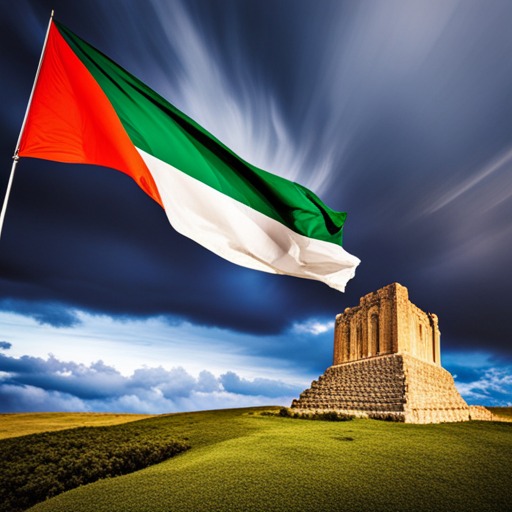Ireland-Norway-Spain Recognise Palestinian State: Time for Other Nations to Follow Suit

A general election has been declared for 4 July 2024. It’s quite apparent that the economic situation can’t get any worse; inflation has decreased, but the Governor of the Bank of England remains uncertain if he can reduce the biting interest rates now. The public is equally unsure if The Labour can perform any better. However, both main contenders for Number 10 Downing Street are confident in their positions. While Rishi Sunak and Keir Starmer have failed domestically and awfully failed on the Palestinian issue, our neighbouring country beside two more European countries show they have a light to shine: Ireland, Norway and Spain have declared they recognise a Palestinian state.

Their recent decision to recognise a Palestinian state has sent ripples across the globe. This bold move comes at a time when the Israeli-Palestinian conflict continues to exact a devastating toll on human lives and communities. By acknowledging Palestine as a sovereign state, Ireland aims to offer hope and support to a people long caught in one of the world’s most enduring conflicts. Now, it is time for other nations to follow suit.
The humanitarian toll of this conflict is staggering. According to various reports, the violence has resulted in numerous casualties on both sides, with innocent civilians often bearing the brunt. Families are torn apart, homes are destroyed, and futures are shattered. In such a grim context, Ireland’s recognition of Palestine can be seen as a beacon of hope for many Palestinians who yearn for peace and stability.
This recognition is not merely symbolic; it carries significant weight in international diplomacy. By recognising Palestine, Ireland sends a strong message about its commitment to human rights and justice. It underscores the importance of acknowledging the suffering endured by Palestinians and the urgent need for a resolution that respects their right to self-determination.
Political Responses: A Mixed Bag
The political reactions have been varied and intense. Domestically, Irish leaders like Taoiseach Simon Harris and Tánaiste Micheál Martin have stood firm in their support for recognising Palestine. They argue that this move aligns with Ireland’s long-standing commitment to promoting peace and justice globally.
Taoiseach Harris emphasised that recognising Palestine is not an act against Israel but rather a step towards encouraging meaningful dialogue between both parties involved in this protracted conflict. Tánaiste Martin echoed these sentiments, stating that Ireland’s decision aims to contribute positively towards achieving lasting peace in the region.
On the international front, however, reactions have been mixed. Israeli officials have expressed strong disapproval, with some even recalling their envoys from Dublin as a sign of protest. Opposition figures like DUP MP Ian Paisley criticised Ireland’s decision as misguided and counterproductive.
Despite these criticisms, it is essential to consider why such divergent views exist. For many Israelis, any form of recognition for Palestine is seen as undermining their security concerns amidst ongoing hostilities from groups within Palestinian territories. Conversely, supporters argue that recognising Palestine could pave the way for more balanced negotiations aimed at achieving lasting peace.
The Two-State Solution: A Path Forward?
At its core lies one fundamental question – how can we achieve lasting peace between Israelis and Palestinians? For decades now various attempts have been made through diplomatic channels aiming towards establishing two independent states coexisting peacefully side by side – Israel & Palestine – each respecting other’s sovereignty while ensuring security & prosperity within their respective borders.
Ireland’s support for this two-state solution reflects its belief in diplomacy over conflict; dialogue over violence; coexistence over division! By officially recognising Palestinian statehood today – they hope other nations might follow suit thus creating momentum needed globally pushing forward peace processes stalled so far due lack consensus among key stakeholders involved directly or indirectly shaping future course events unfolding Middle East region fraught complexities historical grievances geopolitical interests intertwined deeply making resolution elusive yet desperately sought after millions affected adversely ongoing strife spanning generations now!
These Western countries have taken an important step forward; it’s time for other nations around the world to follow suit!





